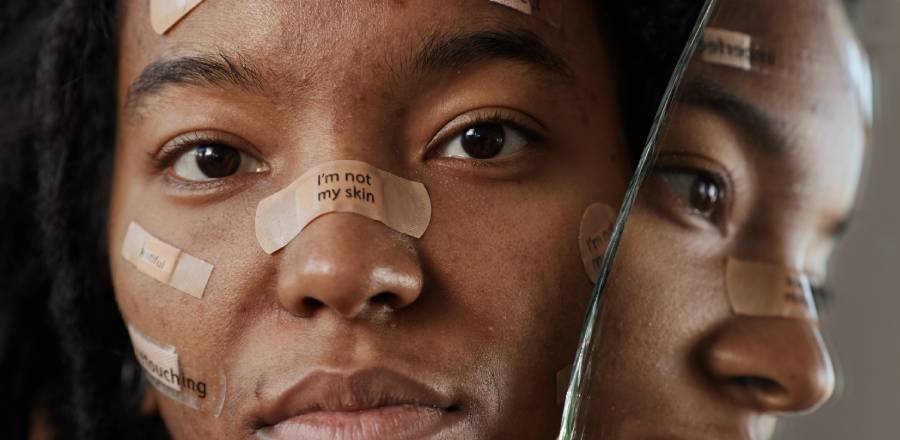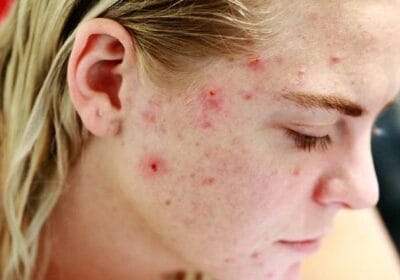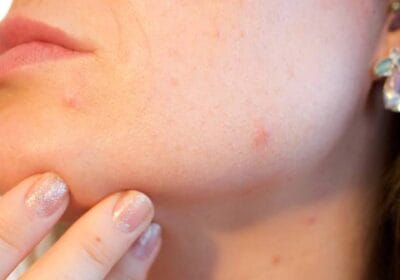Acne is a common skin condition that affects people of all ages. It can be frustrating and even embarrassing, but don’t worry! There are ways to manage it effectively. In this article, we’ll discuss five easy tips for treating acne that you can incorporate into your daily routine. So, let’s dive in and learn how to get clearer, healthier skin!
Table of Contents
Tip 1: Gentle Cleansing
Avoiding scrubbing and abrasives
One of the most important things to remember when treating acne is to avoid scrubbing and using abrasive cleansers. These can irritate your skin and make acne worse. Instead, be gentle when washing your face and use a mild cleanser that is suitable for your skin type.
Choosing the right cleanser
Look for a cleanser specifically designed for acne-prone skin. These products usually contain ingredients like salicylic acid, benzoyl peroxide, or tea tree oil, which can help unclog pores and reduce inflammation. Remember to cleanse your face twice a day – once in the morning and once before bed.
Tip 2: Sun Protection
Benefits of sunlight
While it’s true that sunlight can help kill acne-causing bacteria, it’s essential to practice safe sun exposure. Spending a limited amount of time in the sun (about 15 minutes per day) can help improve your skin’s appearance and provide essential vitamin D.
Risks of overexposure
Overexposure to sunlight can lead to sunburn, premature aging, and skin cancer. It can also cause your skin to produce more oil, which can clog your pores and worsen acne.
Sunscreen use
To protect your skin from the sun’s harmful rays, always wear a broad-spectrum sunscreen with an SPF of at least 30. Choose a sunscreen that is oil-free and non-comedogenic to avoid clogging your pores.
Tip 3: Adapting to Weather Conditions
Effects of extreme cold
Extreme cold weather can cause your skin to become dry and irritated, leading to clogged pores and acne flare-ups. To combat this, it’s important to moisturize your skin regularly and maintain a comfortable indoor temperature.
Moisturizing and temperature management
Choose a moisturizer specifically formulated for acne-prone skin and apply it daily. Keep your home’s temperature between 70 and 80 degrees Fahrenheit to help prevent dryness and irritation.
Tip 4: Swimming and Exercise
Stress reduction
Stress can contribute to acne breakouts, so incorporating exercise into your routine can help manage stress and improve your skin’s health. Swimming is a great low-impact exercise that can also help cool your body, which can be beneficial for acne-prone skin.
Indoor swimming pools
Opt for swimming in a well-maintained indoor pool, preferably with ozone purification. This type of pool has fewer harsh chemicals that could irritate your skin. The water temperature in indoor pools is typically between 75 and 85 degrees Fahrenheit, which can help soothe acne-affected areas while providing a full-body workout.
Benefits of exercise on acne
In addition to stress reduction, regular exercise can improve blood circulation and boost your immune system. This helps your body fight off acne-causing bacteria and promotes healthier skin overall. Just remember to cleanse your face thoroughly after exercising to remove any sweat and bacteria.
Tip 5: Maintaining Cleanliness
Changing linens and towels
It’s crucial to change your pillowcases, bed sheets, washcloths, and towels regularly, as these can harbor acne-causing bacteria. Aim to wash your pillowcases and face towels every other day and your sheets and body towels at least once a week.
Natural detergents and essential oils
Use a natural detergent for washing your linens and consider adding vinegar, tea tree oil, or essential oils like lime, lemon, or orange to your laundry. These natural ingredients can help kill bacteria and reduce the likelihood of acne breakouts.
The Importance of a Healthy Lifestyle
Diet and hydration
Eating a balanced diet rich in fruits, vegetables, and whole grains can improve your skin’s health. Stay hydrated by drinking plenty of water, which helps flush toxins from your body and keeps your skin looking fresh.
Sleep and stress management
Getting enough sleep is essential for healthy skin, as it allows your body to repair and regenerate itself. Aim for at least 7-8 hours of sleep per night. Also, practice stress-reducing activities like meditation, yoga, or deep breathing exercises to help keep your skin in top shape.
Conclusion
Acne can be a challenging and frustrating condition, but with the right approach, you can successfully manage it. By incorporating these five easy tips into your daily routine, you’ll be on your way to clearer, healthier skin. Remember, consistency is key, and improvements may take time, so be patient and stay committed to your skincare regimen.
FAQs
- Can over-the-counter treatments help with acne?
Yes, over-the-counter treatments containing ingredients like benzoyl peroxide or salicylic acid can be effective in treating mild to moderate acne. Consult your dermatologist for the best options for your skin type. - How long does it take to see results from a new acne treatment?
It can take anywhere from 6-12 weeks to see improvements in your acne after starting a new treatment. Be patient and consistent with your skincare routine. - Is it okay to wear makeup if I have acne?
Yes, but choose makeup products that are oil-free, non-comedogenic, and specifically formulated for acne-prone skin to prevent clogged pores. - How can I prevent acne scars?
Avoid picking at your acne, as this can cause scarring. Treat your acne early and follow your dermatologist’s recommendations to minimize the risk of scarring. - When should I see a dermatologist for my acne?
If your acne is severe, causing scarring or emotional distress, or not responding to over-the-counter treatments, it’s a good idea to consult a dermatologist for professional advice and treatment options.



